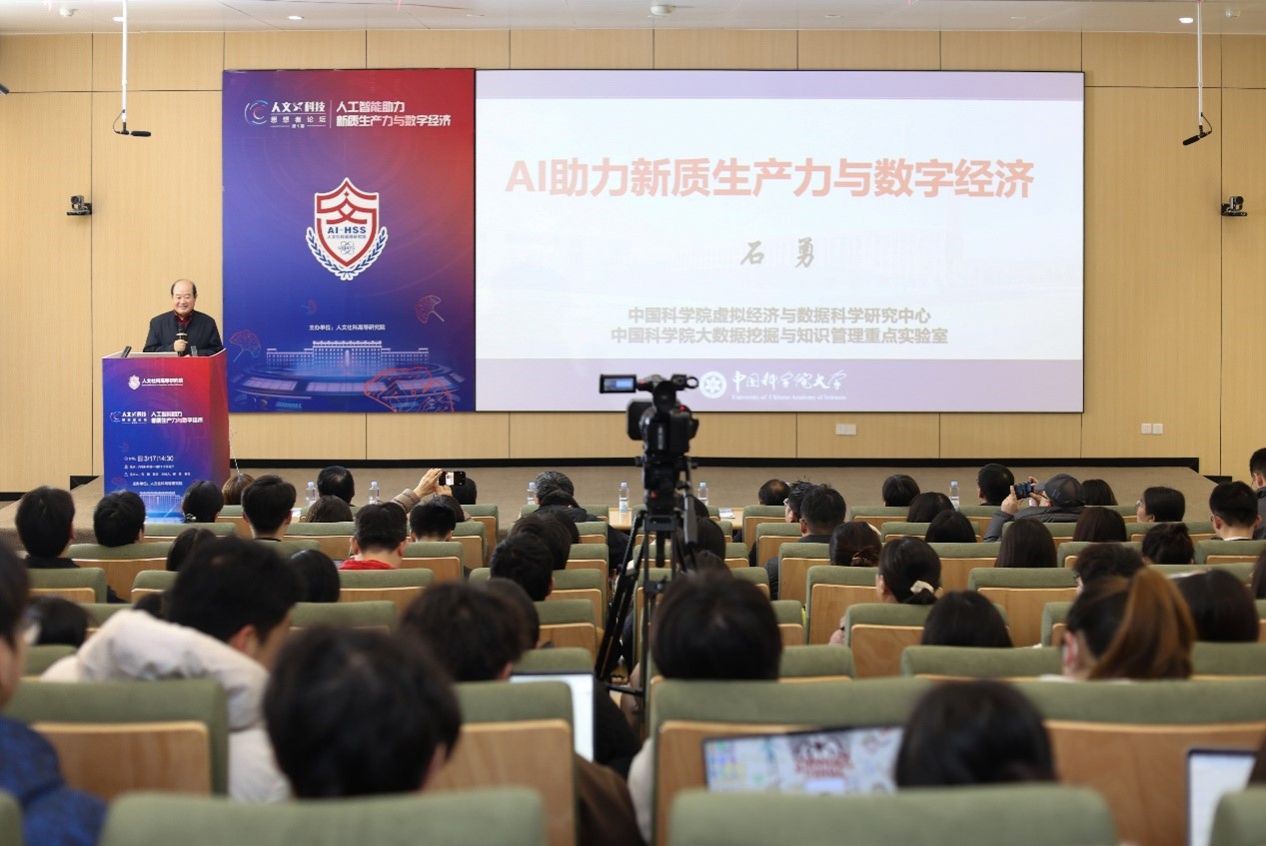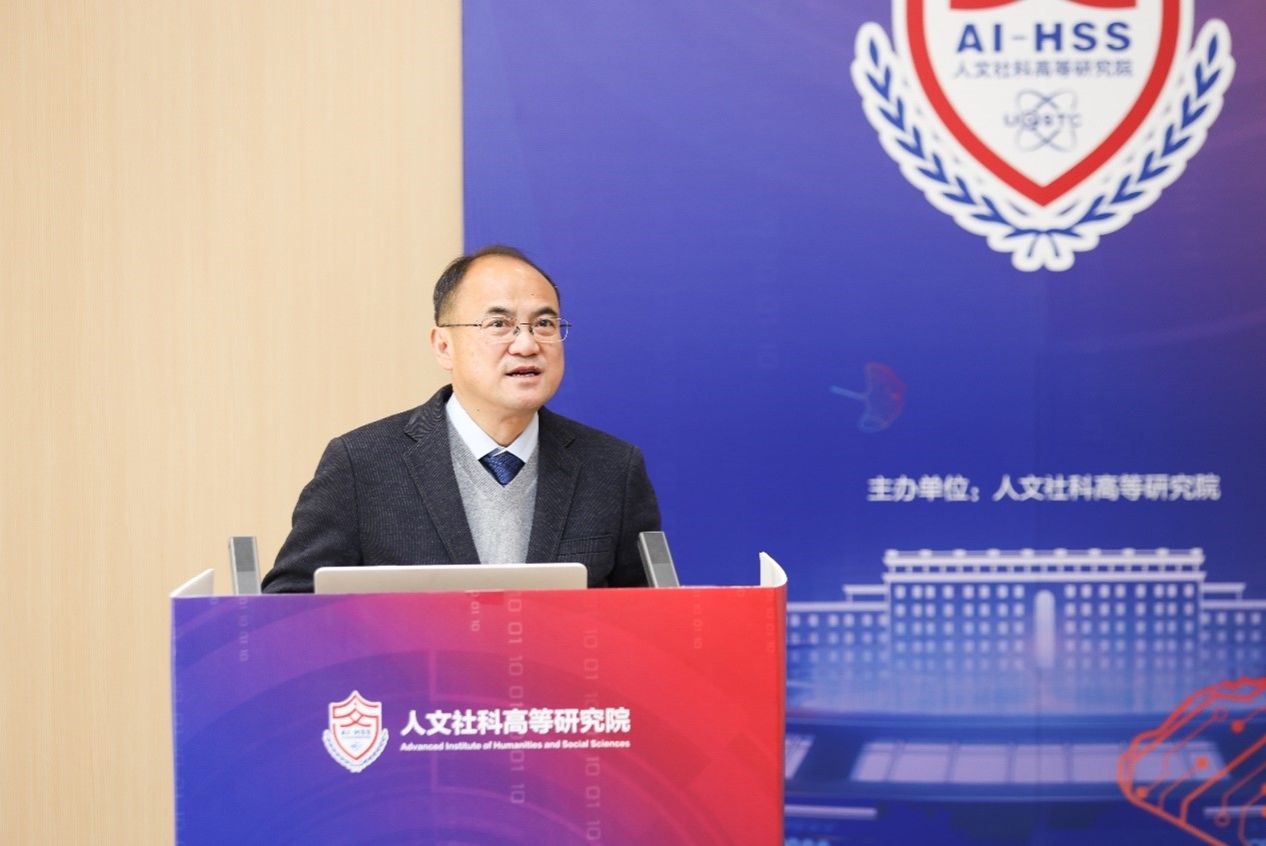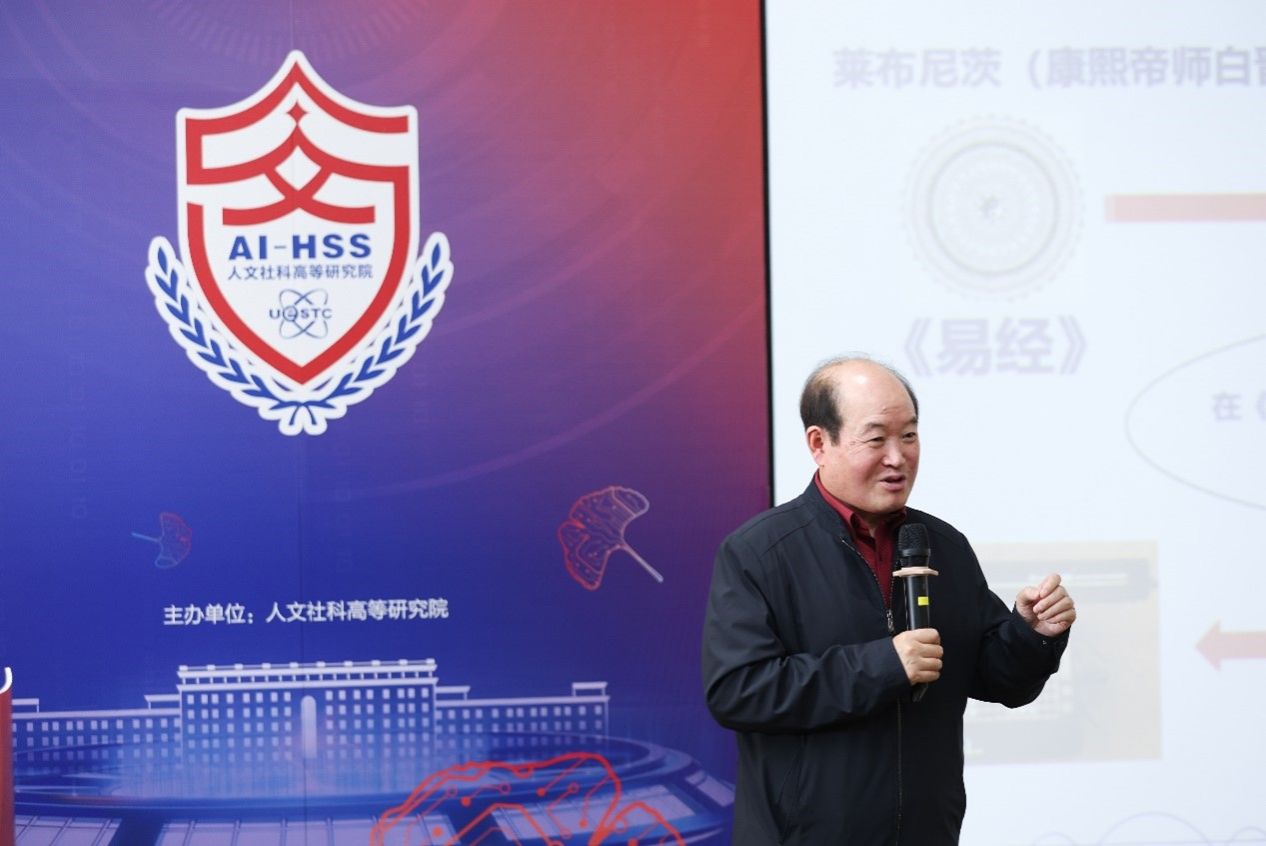On March 17, the Advanced Institute of Humanities and Social Sciences hosted the inaugural session of the Humanities × Technology Thinkers’Forum. This forum, themed Artificial Intelligence Empowering New Quality Productive Forces and Digital Economy, featured Professor Shi Yong as the keynote speaker. Professor Shi isAcademician of the World Academy of Sciences (TWASand ofthe International Eurasian Academy of Sciences, a counselor of the State Council of China, and a Chair Professor at the University of Chinese Academy of Sciences (UCAS). The event was attended by Vice President Zhao Zhiqin, along with representatives from the university’s Development and Planning Office, Office of Liberal Arts, Graduate School, School of Foreign Languages, School of Marxism, and School of Public Administration. The forum wasmoderatedby Professor Zeng Yong,Academicianof the International Eurasian Academy of Sciences and Dean of the Advanced Institute of Humanities and Social Sciences.

Professor Zengextended a warm welcome and gratitude to Professor Shiforaddressing the forum, introducing his distinguished research background and providing an overview of the forum’s context and theme.

Drawing on his expertise in digital economy, multi-objective decision-making, data mining, and knowledge management, Professor Shishared insights onFundamental Issues in the Digital Economy,Artificial Intelligence and Large-Scale Models,East-West Data Computing and the Digital Economy, andRecommendations and Reflections on Developing the Digital Economy. He emphasized that big data, intelligent algorithms, and computing power platforms constitute the three core pillars ofdigital economy. He noted that technological innovation must align with both global scientific frontiers and national strategic needs, while leveraging the digital economy as a key driver to integrate technology and economic development. Additionally, he proposed a series of recommendations for advancingdigital economy.

In conclusion, Professor Shistated that moving forward, it is imperative to fully advance technological innovation, strengthen ethical governance frameworks, and deepen international collaboration to foster inclusive growth indigital economy, thereby injecting robust momentum into the sustainable development of the global economy and society.
During the Q&A session, facultymembersand students engaged in lively discussions on topics such as AI regulation and the development of large-scale government-oriented AI models. Professor Shipatiently addressed their inquiries, encouraging students to integrate AI technologies into their respective disciplines to better navigate emerging challenges and seize new opportunities in thisrapidlyevolving era.
This forum served as a high-quality platform for academic exchange and intellectual discourse in the fields of artificial intelligence anddigital economy. It not only provided participants with in-depth insights into cutting-edgeindustrialtrends but also offered fresh perspectives and directions for research and practice in related domains.